Kirsten Flagstad (1895-1962)
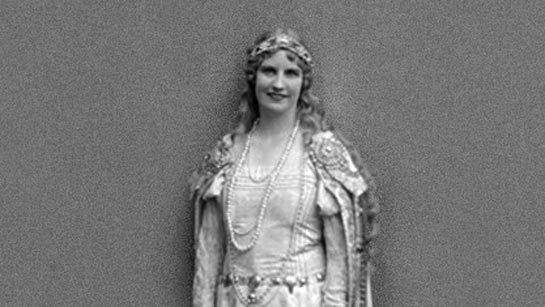
Kirsten Flagstad, by many considered the greatest dramatic soprano ever, created a huge sensation when she made her debut at the Metropolitan on 2 February 1935. At Metropolitan she sang all the great Wagner roles. After the war she had great success at Covent Garden, where she sang 1948-52. She made numerous recordings.
Her decision to stay in occupied Norway during the war made her unpopular in the Unites States. Rudolf Bing invited her back to sing at the Metropolitan in 1950 to protests from people who erroneously thought she was a Nazi.
Kirsten Flagstad's Bayreuth career was short:
- 1933 Ortlinde (Die Walküre), 3. Norn (Götterdämmerung)
- 1934 Sieglinde (Die Walküre), Gutrune (Götterdämmerung)
Said about Kirsten Flagstad
Flagstad was a dear kind colleague. Very helpful on stage. She was not
the greatest actress, but compensated for that with the expression of her
face - and her poise. Despite her stoutness - and it was all muscle, no
fat - she had such dignity, and a marvellous face. She radiated personality:
the personality of the role, by her face and her voice. Singing with her
one had a constant wish just to listen to this glorious voice during a
performance. Some artists sing certain phrases in such a way that you always
associate that music with one singer. That is true for me about some phrases
of Isold's music; they are always Flagstad.
Hans Hotter in Penelope
Turing: "Hans Hotter - Man and Artist"
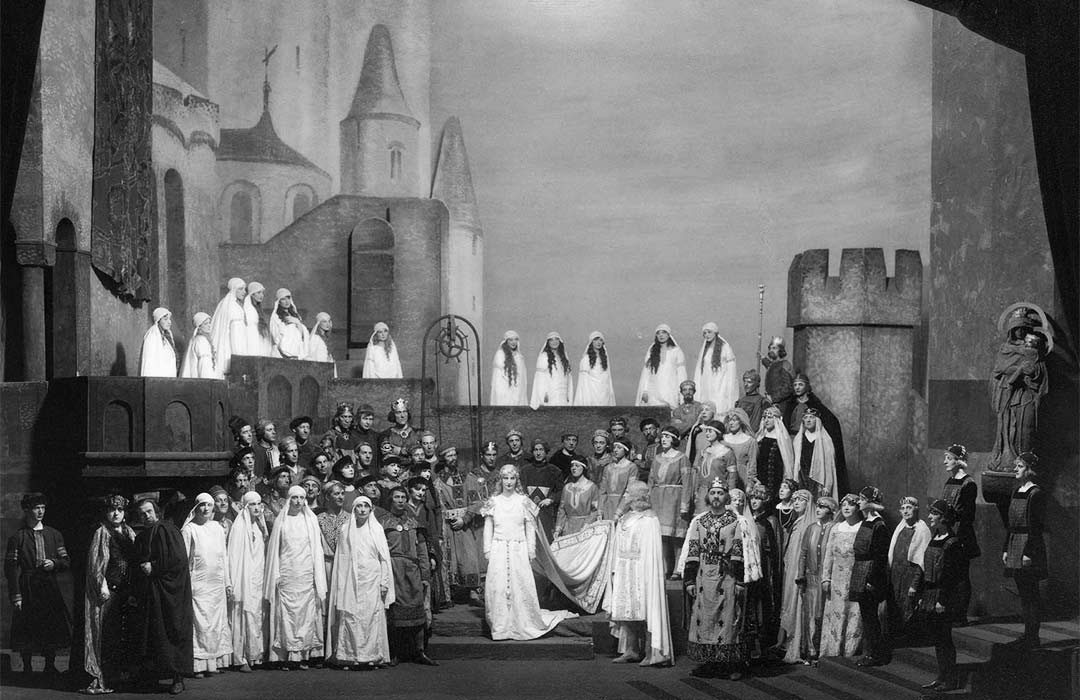
Kirsten Flagstad as Elsa in the Lohengrin production at the National Theatre in Oslo in 1929.
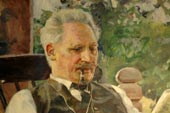
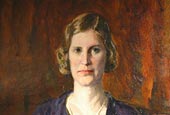
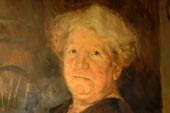
Kirsten Flagstad between her father and her mother. Paintings in the Kirsten Flagstad Museum in Hamar, Norway.
Selected Biographies



